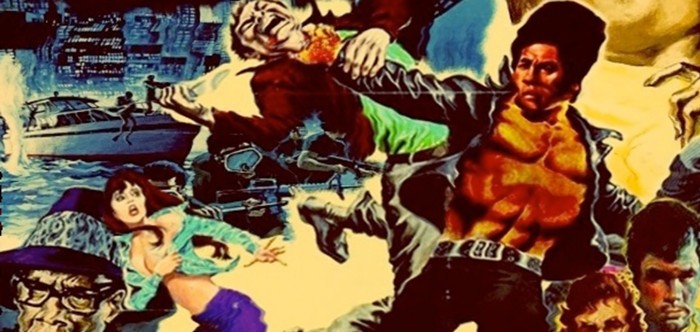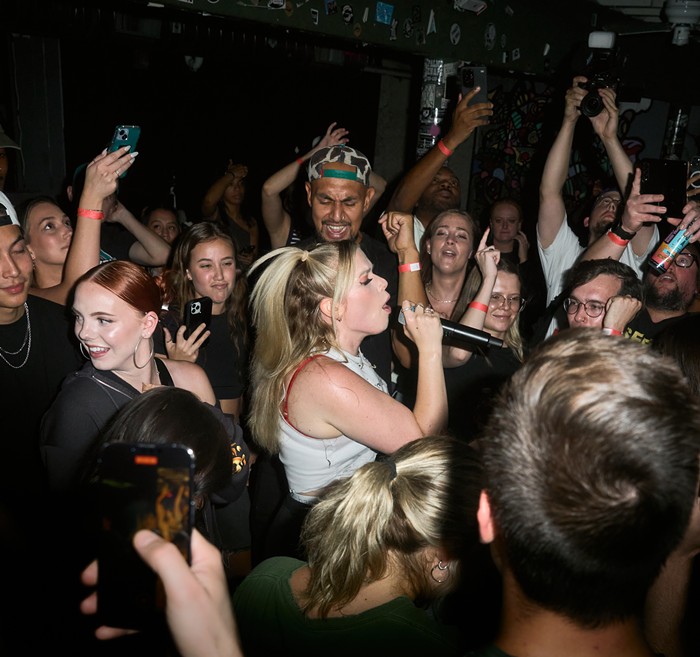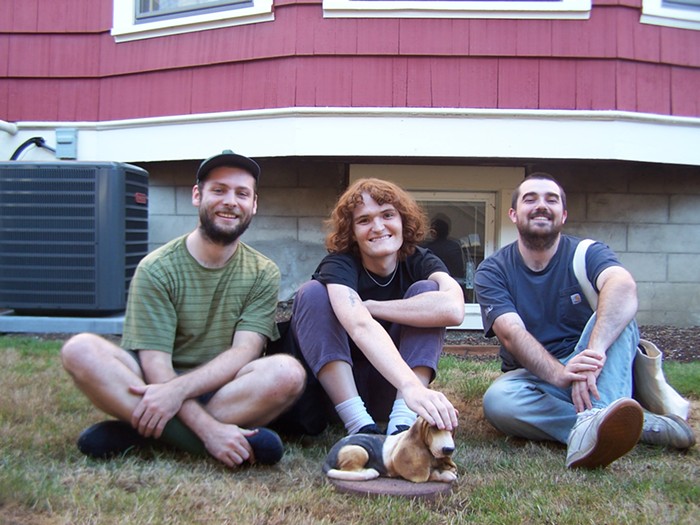Thurs July 11
Aladdin Theater
PuffyAmiYumi are pop-culturally fascinating. Brought together, Monkees-style, by a Sony Music Japan talent search in 1996, Ami Onuki and Yumi Yoshimura have since become their country's Britney Spears, influencing fashion and culture in a way that no other pop icons have--becoming the kind of obsessive, hysterical phenomena that manifests itself often in Japan. They have their own, absurd television show, called Pa-Pa-Pa-Pa-Puffy--part animated, part live-action, it's been best described as "Pee-wee's Playhouse meets the Rosie O'Donnell Show." On Pa-Pa-Pa-Pa-Puffy, Ami and Yumi play with sock puppets, interview famous J-Pop stars, and do things like go to glass-blowing companies and make saucers with little cartoon rabbits on them. And, like any good pop stars, PuffyAmiYumi have dolls fashioned after their likeness.
However, because Japan is a much cooler country than America, their music is actually good. Puffy, as they are known in places where Sean "Puffy"/"P. Diddy" Combs can't issue a cease-and-desist, tread a well-written musical pastiche of borrowed styles. Their songs, mostly written by other people, are devoid of much substance, but catchy and weird enough to make up for it. Mixing their strikingly similar, cartoon-sweet voices, the ladies have dabbled in power-pop worthy of Matthew Sweet, The Monkees (of course), Aislers Set, and ELO; great disco tracks; rocking rumba/samba/hot club hits with DJ action; harmonized rockabilly; and most recently, covers of Japanese standards. Clearly, PuffyAmiYumi are their own pop-culture renaissance--the worthwhile, non-demonic version of Mary Kate and Ashley--most certainly created and controlled by their label's genius marketing executives, but for some reason, still totally appealing and cool. (Perhaps that's where the "genius" part comes in.)
For the following interview, I asked a translator questions in English; she translated them to Japanese for Puffy; and then translated Puffy's answers back to English for me. So the answers are actually the translator's interpretations of both Puffy's and my statements.
What is most inspiring to Puffy?
"Puffy's music is from Tamio Okuda, a producer in Japan. So they get inspired by him, as Puffy."
What can they do now that they're famous that they couldn't before?
"The thing is, they go to crowd... If they don't care about anything, they don't mind, but if the crowd notices them, and somebody's bothered by those scenes, they care about that too much, so they can't go out freely. So that's pretty sad."
Are they fulfilling their goals and dreams by being in Puffy?
"They enjoy every moment of their lives. They really enjoy what they're doing, so there are no goals, actually, because they keep going enjoying themselves. So if they have to answer what is their goal, their goal is they got bored with something, and if they can't do it anymore, that's the end of their career, but they are really enjoying every minute of their career right now. They keep doing that."
Do they ever feel pressured knowing so many people look up to them?
"Nobody told them that. Nobody told them anything, so they don't get any pressure!"
Do they pay attention to subculture and fashion in Japan, like yamambas, kawaii, or costume fashion?
"They feel like they are not the role models for sub-pop-culture or stylish people. They feel they are very natural, very normal. Sometimes they look at the people who walk by them and say, 'Oh, that's a good style,' and they can arrange it for them. So sometimes they look at the magazines and they like it, but they can't arrange it. So they feel normal, they don't feel like they are pop culture children or stylish people. They always wear jeans and T-shirts; this is what they like."
How does it feel to be so famous?
"All the reporters from the United States ask them the same question: 'You are very famous in Japan, how do you feel about it?' And they say, 'We're not famous, and I don't feel anything! I don't see that, so I don't feel any pressure, and I don't feel anything!" [Translator laughs, apologizes for laughing.]


















